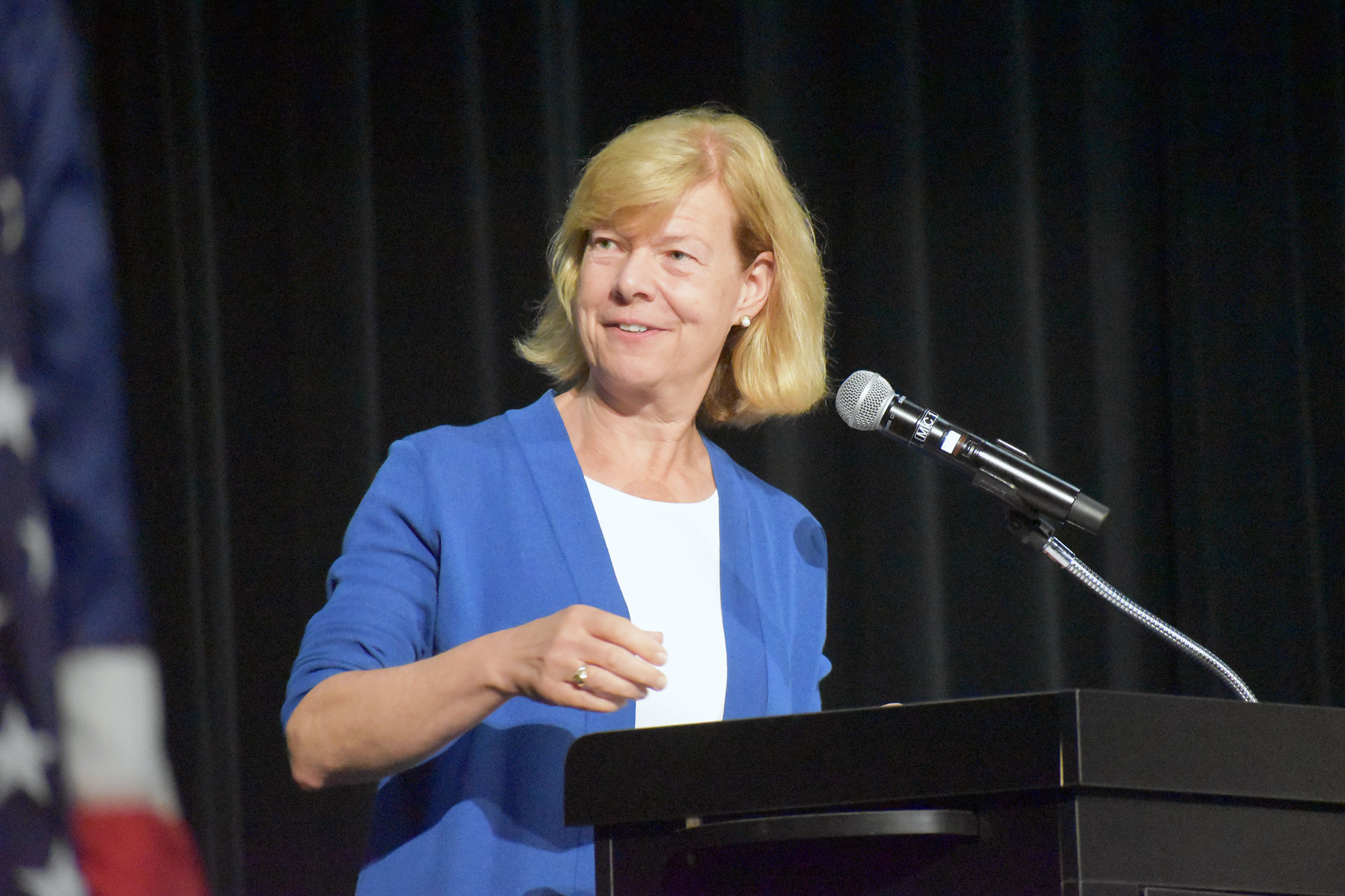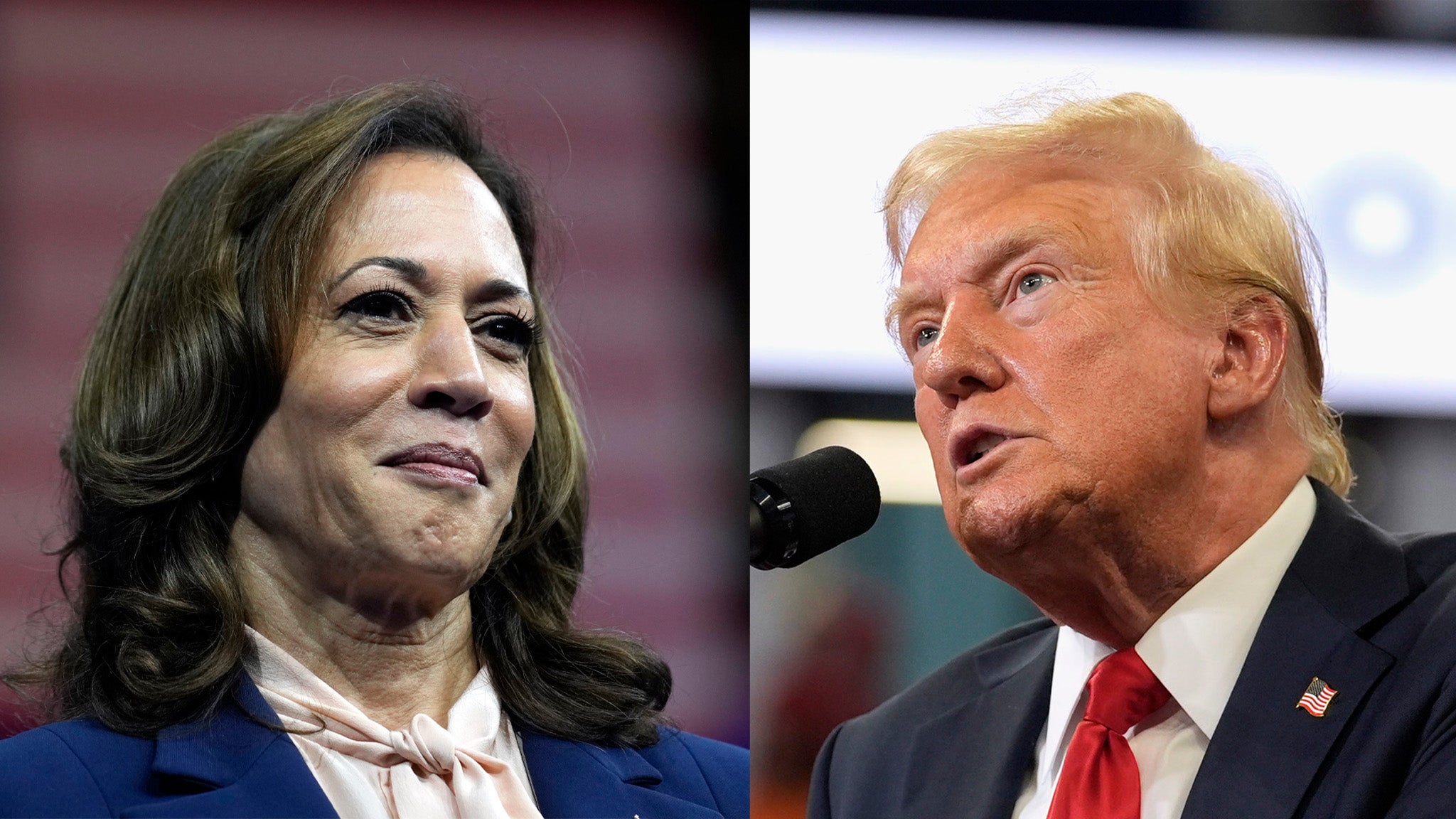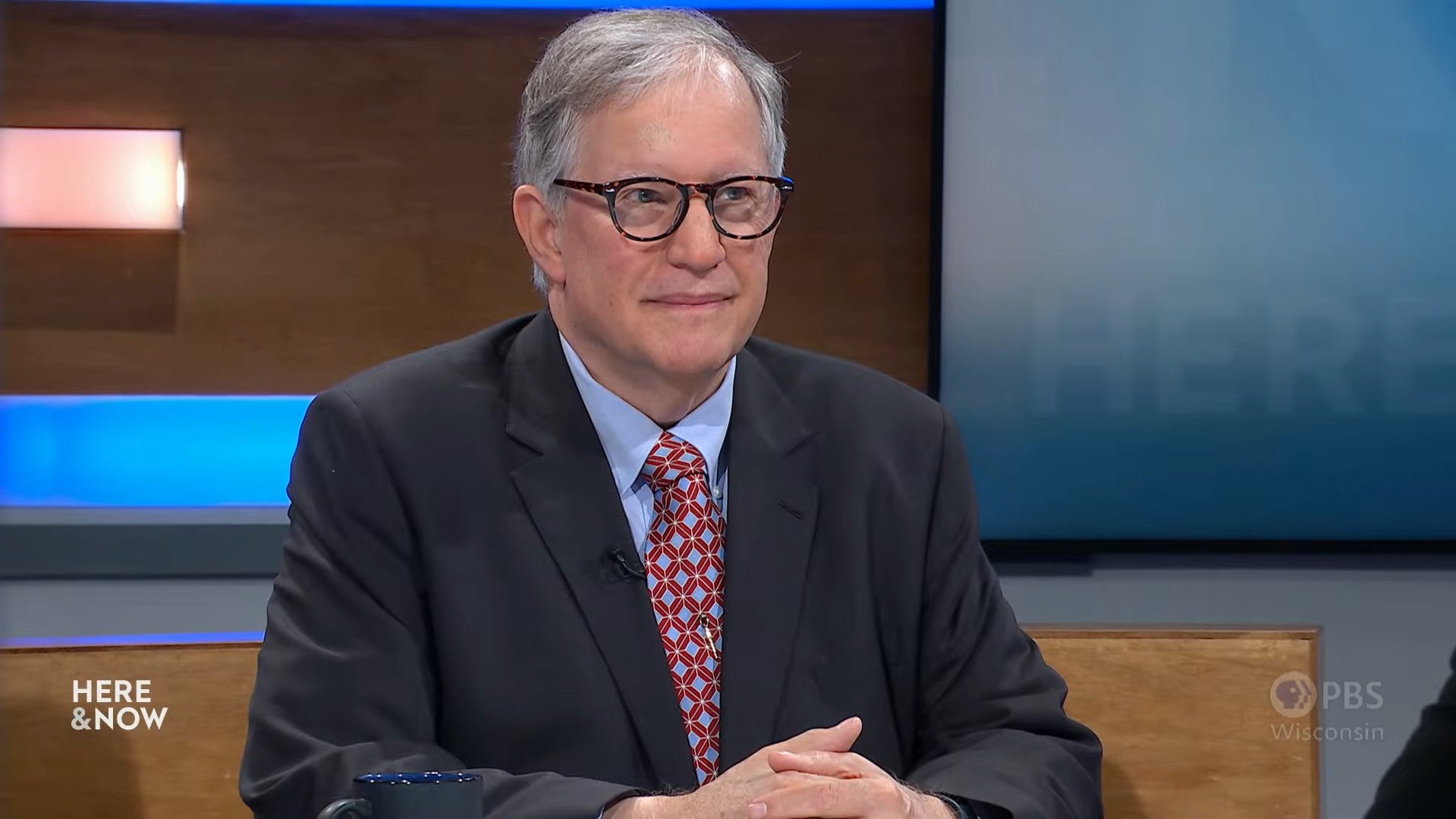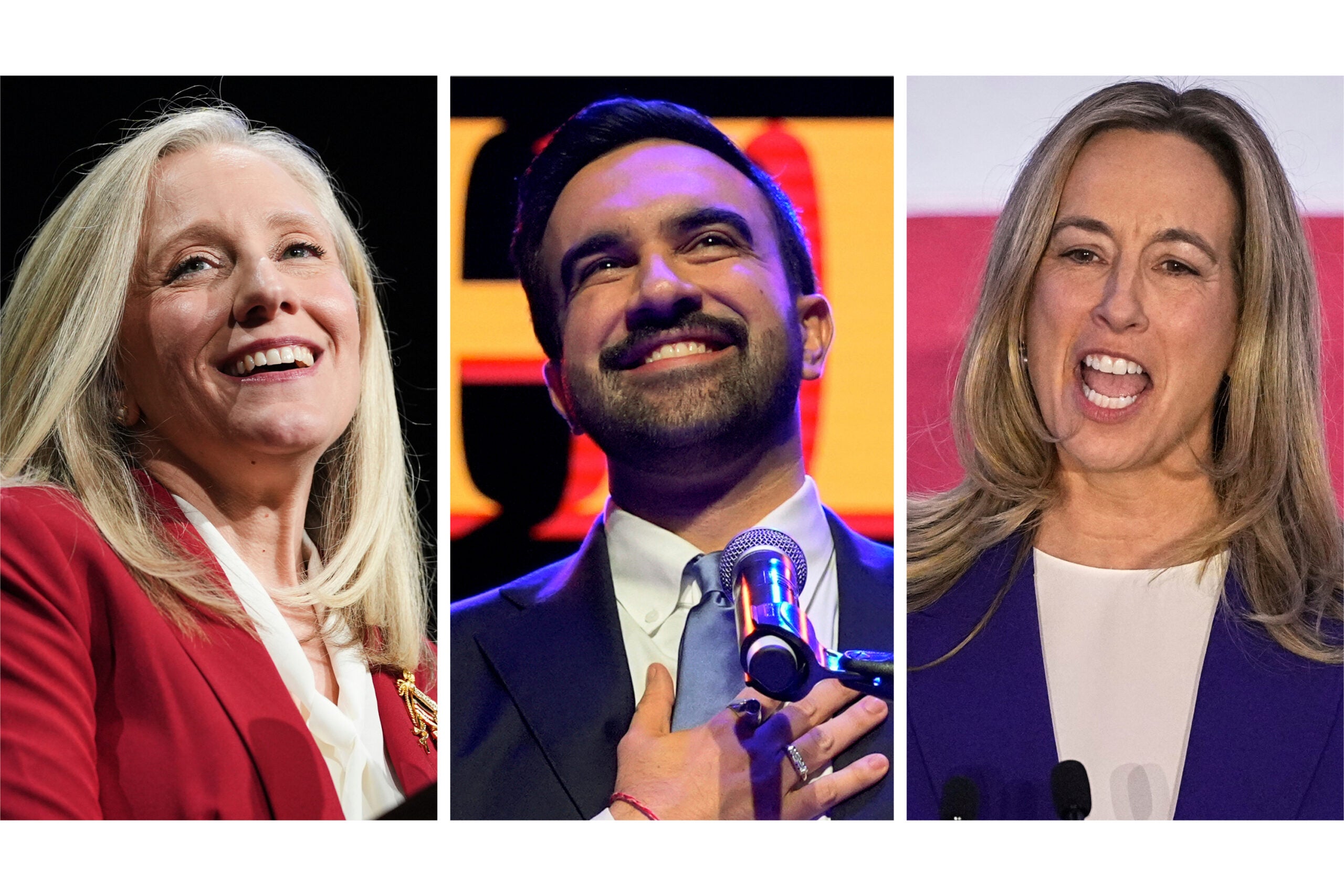Despite a new candidate for president, the latest Marquette University Law School poll shows swing state Wisconsin in familiar territory, with former President Donald Trump and Vice President Kamala Harris locked in a dead heat.
Among registered voters, Marquette’s latest poll shows Harris with 49 percent of the vote, compared to 50 percent for Trump. Among likely voters, the survey flips, showing Harris leading Trump, 50 to 49 percent.
It’s Marquette’s first survey since June, and in that month-and-a-half, the political world has changed.
News with a little more humanity
WPR’s “Wisconsin Today” newsletter keeps you connected to the state you love without feeling overwhelmed. No paywall. No agenda. No corporate filter.
Trump survived an attempted assassination and President Joe Biden dropped out of the race, endorsing Harris. Republicans held their national convention, with Trump nominating Ohio U.S. Sen. JD Vance as his running mate. Harris, who became the Democratic Party’s nominee via a virtual roll call, chose Minnesota Gov. Tim Walz to be her running mate on Monday.
Marquette’s latest poll surveyed 877 registered voters and has a margin of error of plus or minus 4.6 percent. It was in the field from July 24 to Aug. 1, so it did not measure voters’ attitudes since Walz was added to the Democratic ticket.
But it followed the other whirlwind of events, including the switch from Biden to Harris at the top of the ticket, which has given Democrats a boost in other polls. In Marquette’s June survey, Biden and Trump were tied. Harris picking up similar polling numbers barely two weeks into her run indicates that voters adjusted quickly to the change.
That idea is borne out by the number of Wisconsin voters — 79 percent — who agreed Biden was right to drop out of the race about three weeks ago. That includes the vast majority of Democrats, at 91 percent.
If Biden had remained the candidate, the poll suggests Trump would have pulled ahead, 47 to 42.
“It is a striking uptick,” said Charles Franklin, who runs the poll, of Harris quickly bridging the gap left behind by Biden. “Democrats had been unenthusiastic about Biden all year. After the debate, a lack of enthusiasm, I think, turned to near depression, and when he made that decision, it opened the door to a fresh campaign.”
The results published Wednesday will be closely watched in Wisconsin, where four of the last six presidential races have been decided by less than a percentage point.
Third-party and independent candidates lose voter share
The poll numbers were also released one day after four independent candidates, including Robert F. Kennedy, Jr., filed to get on the November ballot. If those are finalized, Wisconsinites could see up to nine presidential candidates on their ballot, including candidates from the Green, Libertarian and Constitution parties.
The poll surveyed voters on the top seven prospective candidates, including independents Kennedy and Cornel West, the Green Party’s Jill Stein, Libertarian candidate Chase Oliver, and the Constitution party’s Randall Terry.
In such a multi-candidate match-up, Harris leads with 45 percent of registered voters, and Trump receiving 43 percent. Kennedy would receive 8 percent, and Stein and Oliver about 1 percent. West and Terry polled below 0.5 percent.
Kennedy’s voter share remained the same from June, but the other third-party and independent candidates saw their voter shares decrease.
Third-party and independent candidates in Wisconsin received 5.5 percent of the vote in 2016, and just 1.5 percent total in 2020. Both of those races were decided by less than a percentage point, so these candidates do stand a chance of making a significant impact on the major party candidates.
Enthusiasm boost after Harris enters the race
Anecdotally, Democratic campaigners reported a jolt of energy behind the Harris campaign after she received Biden’s endorsement last month. Wednesday’s poll numbers also show that voter enthusiasm has increased dramatically.
“There was a very quick embrace of Harris that I think was interesting,” said Franklin. “The party obviously just really quickly coalesced around her, and that has boosted people’s perceptions of her in terms of favorability. It’s changed Democrats’ view of how the race is going, and it sort of dwarfed or overshadowed the Republican Convention, which is normally where you’d get a convention bump.”
Harris made gains with the least enthusiastic voters, and the moderately and somewhat enthusiastic, while Trump leads with the most enthusiastic voters.
Sixty-one percent of voters overall said they were looking forward to voting, compared to 46 percent in July. That corresponds not only with the change-up on the Democratic ticket, but with the attempted assassination attempt on Trump, the Republican National Convention, and the announcement of Vance as Trump’s running mate.
And there was a “small lessening of double-haters,” or voters who dislike both candidates, according to Franklin, down to 11 percent in July from 17 percent in June.

Baldwin continues to outpoll Hovde in closely watched US Senate race
Incumbent Democratic Sen. Tammy Baldwin leads her most likely Republican opponent, businessman Eric Hovde, 53 to 46 percent among registered voters. That’s a slight increase from June, when Baldwin led 52-47 among both registered and likely voters.
Baldwin’s Senate seat is one of several that Democrats are defending as they seek to maintain their edge in that chamber. Her favorability rating is 44 percent, as is her unfavorability rating. Hovde’s favorability rating is 24 percent, and unfavorability rating is 37 percent.
And the percentage of voters who say they don’t know enough to form an opinion about Hovde has declined significantly over the course of his campaign, moving from 82 percent in January to 38 percent in this month’s polls. During that time, his unfavorability rating has grown more than favorability.
The most popular elected official in Wisconsin is Gov. Tony Evers, according to Franklin, with a job approval of 51 percent and disapproval rating of 44 percent. That’s held steady since June.
Wisconsin Public Radio, © Copyright 2025, Board of Regents of the University of Wisconsin System and Wisconsin Educational Communications Board.







